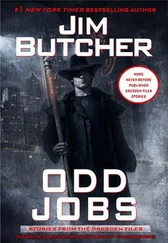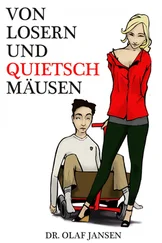Olaf Stapledon - Odd John
Здесь есть возможность читать онлайн «Olaf Stapledon - Odd John» весь текст электронной книги совершенно бесплатно (целиком полную версию без сокращений). В некоторых случаях можно слушать аудио, скачать через торрент в формате fb2 и присутствует краткое содержание. Город: London, Год выпуска: 2012, ISBN: 2012, Издательство: Hachette UK, Жанр: Фантастика и фэнтези, на английском языке. Описание произведения, (предисловие) а так же отзывы посетителей доступны на портале библиотеки ЛибКат.
- Название:Odd John
- Автор:
- Издательство:Hachette UK
- Жанр:
- Год:2012
- Город:London
- ISBN:9780450038570
- Рейтинг книги:5 / 5. Голосов: 1
-
Избранное:Добавить в избранное
- Отзывы:
-
Ваша оценка:
- 100
- 1
- 2
- 3
- 4
- 5
Odd John: краткое содержание, описание и аннотация
Предлагаем к чтению аннотацию, описание, краткое содержание или предисловие (зависит от того, что написал сам автор книги «Odd John»). Если вы не нашли необходимую информацию о книге — напишите в комментариях, мы постараемся отыскать её.
Odd John — читать онлайн бесплатно полную книгу (весь текст) целиком
Ниже представлен текст книги, разбитый по страницам. Система сохранения места последней прочитанной страницы, позволяет с удобством читать онлайн бесплатно книгу «Odd John», без необходимости каждый раз заново искать на чём Вы остановились. Поставьте закладку, и сможете в любой момент перейти на страницу, на которой закончили чтение.
Интервал:
Закладка:
For the present the only kind of illumination which came to John was apparently a devastating conviction of the futility of the normal species. To this discovery he reacted sometimes with mere contempt, sometimes with horror at the doom which awaited the human world, and with terror at his own entanglement in it. But on other occasions his mood was com passion, and on others again sardonic delight, and yet on others delight of a more serene kind in which compassion and horror and grim relish were strangely transmuted.
CHAPTER X
THE WORLD’S PLIGHT
I SHALL now try to give some idea of John’s reactions to our world by setting down, more or less at random, some of his comments on individuals and types, institutions and movements, which he studied during this period.
Let us begin with the psychiatrist. John’s verdict on this eminent manipulator of minds seemed to me to show both his contempt for Homo sapiens and his sympathetic appreciation of the difficulties of beings that are neither sheer animal nor fully human.
After our last visit to the consulting-room, indeed before the door was closed behind us, John indulged in a long chuckling laugh that reminded me of the cry of a startled grouse. “Poor devil!” he cried. “What else could he do anyhow? He’s got to seem wise at all costs, even when he’s absolutely blank. He’s in the same fix as a successful medium. He’s not just a quack. There’s a lot of real sound stuff in his trade. No doubt when he’s dealing with straightforward cases of a fairly low mental order, with troubles that are at bottom primitive, he fixes them up all right. But even then he doesn’t really know what he’s doing or how he gets his cures. Of course, he has his theories, and they’re damned useful, too. He gives the wretched patient doses of twaddle, as a doctor might give bread pills, and the poor fool laps it all up and feels hopeful and manages to cure himself. But when another sort of case comes along, who is living habitually on a mental storey about six floors above our friend’s own snug little flat, so to speak, there must be a glorious fiasco. How can a mind of his calibre possibly understand a mind that’s at all aware of the really human things? I don’t mean the highbrow things. I mean subtle human contacts, and world-contacts. He is a sort of highbrow, with his modern pictures and his books on the unconscious. But he’s not human in the full sense, even according to the standards of Homo sapiens . He’s not really grown up. And so, though he doesn’t know it, the poor man is all at sea when he comes up against really grown-up people. For instance, in spite of his modern pictures, he hasn’t a notion what art is after, though he thinks he has. And he knows less of philosophy, real philosophy, than an ostrich knows about the upper air. You can’t blame him. His wings just wouldn’t carry his big fleshy pedestrian mind. But that’s no reason why he should make matters worse by burying his head in the sand and kidding himself he sees the foundations of human nature. When a really winged case comes along, with all sorts of troubles due to not giving his wings exercise, our friend hasn’t the slightest perception what’s the matter. He says in effect, ‘Wings? What’s wings? Just flapdoodle. Look at mine. Get ’em atrophied as quick as possible, and bury your head in the sand to make sure.’ In fact he puts the patients into a sort of coma of the spirit. If it lasts, he’s permanently “cured,” poor man, and completely worthless. Often it does last, because your psychiatrist is an extremely good suggestionist. He could turn a saint into a satyr by mere sleight of mind. God! Think of a civilization that hands over the cure of souls to toughs like that! Of course, you can’t blame him. He’s a decent sort on his own plane, and doing his bit. But it’s no use expecting a vet to mend a fallen angel.”
If John was critical of psychiatry, he was no less so of the churches. It was not only with the purpose of studying Homo sapiens that he had begun to take an interest in religious practices and doctrines. His motive was partly (so he told me) the hope that some light might be thrown upon certain new and perplexing experiences of his own which might perhaps be of the kind that the normal species called religious. He actually attended a few services at churches and chapels. He always returned from these expeditions in a state of excitement, which found outlet sometimes in ribald jests about the proceedings, sometimes in almost hysterical exasperation and perplexity. Coming out from an emotional chapel service of the Bethel type he remarked, “Ninety-nine per cent , slush and one per cent .—something else, but what? ” A tensity about his voice made me turn to look at him. To my amazement I saw tears in his eyes. Now John’s lachrymatory reflexes were normally under absolute voluntary control. Since his infancy I had never known him weep except by deliberate policy. Yet these were apparently spontaneous tears, and he seemed unconscious of them. Suddenly he laughed and said, “This soul-saving! If one were God, wouldn’t one laugh at it, or squirm! What does it matter whether we’re saved or not? Sheer blasphemy to want to be, I should say. But what is it that does matter, and comes through all the slush like light through a filthy window?”
On Armistice Day he persuaded me to go with him to a service in a Roman Catholic cathedral. The great building was crowded. Artificiality and insincerity were blotted out by the solemnity of the occasion. The ritual was somehow disturbing even to an agnostic like me. One felt a rather terrifying sense of the power which worship in the grand tradition could have upon massed and susceptible believers.
John had entered the cathedral in his normal mood of aloof interest in the passions of Homo sapiens . But as the service proceeded, he became less aloof and more absorbed. He ceased to look about him with his inscrutable hawklike stare. His attention, I felt, was no longer concentrated on individuals of the congregation, or on the choir, or on the priest, but on the totality of the situation. An expression strangely foreign to all that I knew of him now began to flicker on his face, an expression with which I was to become very familiar in later years, but cannot to this day satisfactorily interpret. It suggested surprise, perplexity, a kind of incredulous rapture, and withal a slightly bitter amusement. I naturally assumed that John was relishing the folly and self-importance of our kind; but when we were leaving the cathedral he startled me by saying, “How splendid it might be, if only they could keep from wanting their God to be human!” He must have seen that I was taken aback for he laughed and said, “Oh, of course I see it’s nearly all tripe. That priest! The way he bows to the altar is enough to show the sort he is. The whole thing is askew, intellectually and emotionally; but—well, don’t you get that echo of something not wrong, of some experience that happened ages ago, and was right and glorious? I suppose it happened to Jesus and his friends. And something remotely like it was happening to about a fiftieth of that congregation. Couldn’t you feel it happening? But, of course, as soon as they got it they spoilt it by trying to fit it all into the damned silly theories their Church gives them.”
I suggested to John that this excitement which he and others experienced was just the sense of a great crowd and a solemn occasion, and that we should not “project” that excitement, and persuade ourselves we were in touch with something superhuman.
John looked quickly at me, then burst into hearty laughter. “My dear man,” he said, and this I believe was almost the first time he used this devastating expression, “even if you can’t tell the difference between being excited by a crowd and the other thing, I can. And a good many of your own kind can, too, till they let the psychologists muddle them.”
Читать дальшеИнтервал:
Закладка:
Похожие книги на «Odd John»
Представляем Вашему вниманию похожие книги на «Odd John» списком для выбора. Мы отобрали схожую по названию и смыслу литературу в надежде предоставить читателям больше вариантов отыскать новые, интересные, ещё непрочитанные произведения.
Обсуждение, отзывы о книге «Odd John» и просто собственные мнения читателей. Оставьте ваши комментарии, напишите, что Вы думаете о произведении, его смысле или главных героях. Укажите что конкретно понравилось, а что нет, и почему Вы так считаете.












